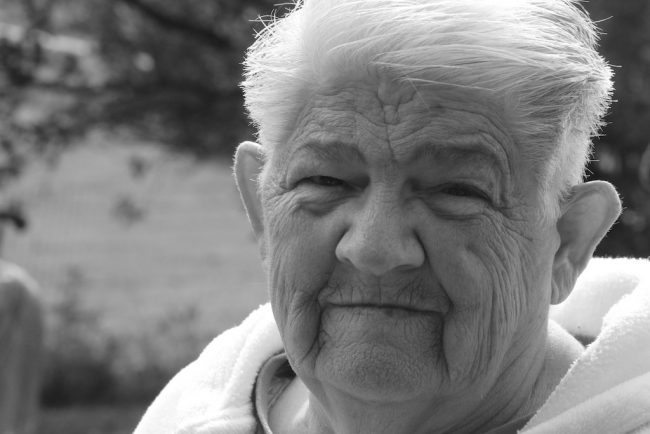
Like many people, I avoided the institutionalized elderly for much of my life. Young people are terrified of the elderly, I think, they remind them of mortality, something they do not wish to know about so early in life. People used to die at home, but now they die in hospitals and nursing homes. Before World War II, 93 per cent of Americans died at home, now about 17 per cent of Americans die at home.
We have outsourced death to giant pharmaceutical and other medical organizations and institutions for the elderly, most of us don’t need to see it or know much of anything about it. We don’t see to see it or experience it, these people are the Invisible Nation, they have vanished from magazines, books, media, TV and movies, music and culture.
Corporations make billions of dollars keeping the elderly alive an on pills and procedures, but the taxpayers are getting tired of paying for it, and there is more and more talk about cutting back on “entitlements,” the terms we now use for the programs that keep older people alive.
There is really little national debate about what to do with the advanced elderly, as they get sick, become immobile, require more care. Generally, the way it works is this, I have seen it too many times. People, as the age, become more seriously ill. As they age, they lose almost all control over their lives.
They are shuttled back and forth to nursing homes, hospitals and rehab centers, getting operations and pills as they go. They become less active and lose control of their lives, and eventually, when modern medicine and drug companies and insurance companies have bled them dry, they are permitted to die, or rather they simply expire.
I appreciate working at the Mansion. It has changed me and enriched me.
It seems like an oasis to me, in a way, the residents, given their circumstances, are cheerful, courteous, and often upbeat. Many of them have an active and sharp sense of humor. People know them and care about them there. They are blessed with a staff of mostly working class and underpaid people who care about them, help them, and love them.
I began my work with the elderly about a decade ago, when I started doing hospice work with two of my dogs, Izzy and Lenore. Lenore didn’t make it, she liked the patients’ food too much. Izzy was a wonderful therapy dog. I spent a lot of time with the advanced elderly, and I realized that this work was not depressing, although sometimes sad. It was uplifting.
In hospice work, I generally didn’t get to know too many people for too long. In the work at the Mansion, I decided to stop going from one institution to another and instead stay put in one place. It was a good decision, I came to know people well and understand better how to help them. They adore Red and have formed powerful attachments to him.
I often laugh and joke with them, we laugh about memory, pills, and aging. I find them brave and thoughtful, and of course, why wouldn’t they be? They are just people, like you and me. I have resolved to not forget them or let them be forgotten. I find so many people out in the world are eager to know them and read about their lives. I am driven to tell their stories.
As well run as the Mansion is, life is hard for these people. People come and go, get sick and die, lose their memory, and eventually their health. People disappear and don’t return, are much-loved, and then vanish. It takes a toll. Understanding this has been a gift for me, I am coming to terms with mortality and with mercy.
I can’t do this work and completely continue to be me. If I had to become a better person to have a better dog, I have to become an even better person to know these people and help them. The spark of life and love is in them, I see it now, they are no longer pale ghosts fading into the sunset.
I am learning to let go of being prickly and detached and judgmental, angry or impatient. I stop, pull back, take a breath.
What’s the catch?
The catch is that there is no catch.
All I have to do is learn to love mercy.

In the past, people actually cared about and often shared homes with elderly parents. (I grew up with my grandmother around as did my daughter.) These days, not so much.
With families broken up all over the country, estrangement and alienation seem to be the natural order.
I rarely see you mention adult children and other family members in these particular posts. Do they not exist?
If they do exist, why do they not support or feel any responsibility to help provide what their own parents need?
It all reminds me of, A Streetcar Named Desire and the “kindness of strangers.” Of course that was a tragedy.
The last two lines say it all….what a beautiful piece, thank you Jon.
While being informative and pointing to truth, you also touched my heart…and probably not only mine. Thanks for writing this.